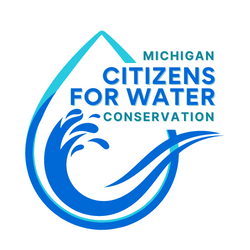Skip to main content
Our Historical Timeline
2000
- MCWC was organized
- Governor Engler and the Department of Environmental Quality (DEQ) grants Nestlé Waters North America a permit to withdraw 400 gallons per minute in Mecosta, MI.
- Strong opposition is expressed by local residents in Mecosta County against Nestlé.
- Attorney General Granholm opposes Nestlé diversion of Michigan spring water.
2002
- MCWC files lawsuit in Mecosta County Circuit Court.
2003
- 19-day trial ending in Judge Lawrence Root ordering Nestlé to close down unreasonable use of groundwater causing environmental impairment.
2004
- Nestlé wins a “stay” from the Michigan Court of Appeals with the help of Governor Granholm and other agencies and is allowed to pump 250 gallons per minute.
2005
- Michigan Court of Appeals upholds trial court scientific finds of environmental harm.
- The Michigan Court of Appeals legally rules that a “balancing test” must be applied between homeowners (riparians) and Nestlé, sharing the water
- An out-of-court settlement is reached between Nestlé and MCWC establishing a 218 gallon per minute average rate of pumping.
2006
- Michigan passes a weak Great Lakes water protection act that exempts bottled water from being a diversion as long as the container is less than 5.7 gallons.
2007
- Michigan Supreme Court rules that, contrary to the Michigan Environmental Protection Act (MEPA), only residents that are immediately impacted can sue for environmental harm.
- MCWC keeps its standing on the Dead Stream and Thompson Lake, but loses its standing to sue regarding the wetlands and Osprey Lake.
- Great Lakes Compact is passed by Michigan and then by US Congress.
2008
- Michigan passes yet another weak water law under limited impact standards, withdrawals of 1 million gallons, exempts 5.7-gallon containers and smaller as a diversion.
2009
- MCWC and Nestlé settle out of court again
- For the next 19 years, pumping limits are in place to protect the Dead Stream and Thompson Lake.
2010
- A new MCWC Board of Directors was elected for a two-year term.
2011
- The MCWC Board of Directors proposed and approved the following resolution: Therefore, be it resolved that Michigan Citizens for Water Conservation hereby opposes any further horizontal hydraulic fracturing operations in Michigan.
2012
- MCWC continues to represent its members as the board engages in researching and educating citizens on hydrofracking or fracking.
